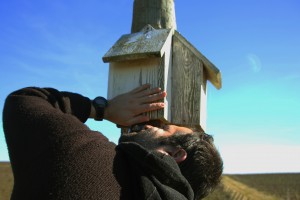Results regarding the olive moth (Prays oleae), part of the bats’ diet, show that bats have a preference for this species, with more than 70% of guano samples testing positive for this insect’s presence during the period when it is most abundant (May).
This project also included an analysis of the biodiversity of bats on the Estate, where 6 species were detected, especially the Mehely’s Horseshoe Bat (Rhinolophus mehelyi) – an endangered species that seems to benefit from the environmental conditions at Herdade do Esporão.
Following this small success, we are installing new bat shelters that are better adapted to forest bat species, who are also avid moth eaters.
These small mammals are strong allies in our journey through organic farming, helping us achieve results that are healthier without the use of any type of synthesized chemical.
